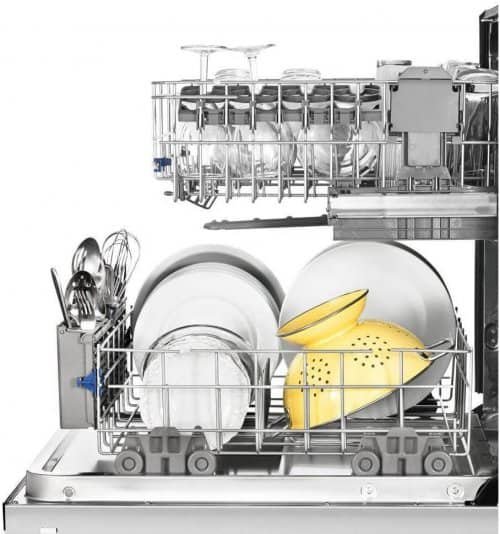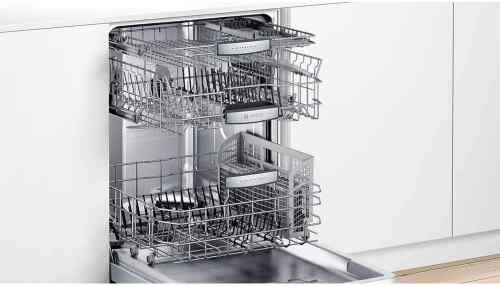Is your dishwasher not performing as well as it used to? Over time, dishwashers can accumulate dirt, grime, and mineral deposits that can affect their efficiency. Regular cleaning and maintenance are essential to ensure that your dishwasher continues to work effectively and keep your dishes sparkling clean. In this article, we will guide you through the best methods and practices for cleaning a dishwasher, helping you maintain its performance and extend its lifespan.
Cleaning your dishwasher might not be the first thing on your mind when it comes to household chores, but it’s an important task that should not be overlooked. A clean dishwasher not only ensures cleaner dishes but also prevents odors, clogs, and potential breakdowns. By following a few simple steps, you can keep your dishwasher in top condition and avoid costly repairs in the future.
Table of Contents
Why Cleaning a Dishwasher is Important?
Before we dive into the cleaning process, let’s understand why it is important to clean your dishwasher regularly. Over time, food particles, soap scum, and mineral deposits can build up inside the dishwasher, leading to unpleasant odors and reduced performance. A dirty dishwasher may leave residue on your dishes, and the clogged spray arms can result in uneven water distribution. Regular cleaning helps remove these contaminants, ensuring that your dishwasher operates efficiently and provides hygienic cleaning results.
Step-by-Step Guide to Cleaning a Dishwasher
Preparing the Dishwasher
Start by emptying the dishwasher completely. Remove all the dishes, racks, and utensil holders, and set them aside for cleaning separately. It’s also a good idea to consult your dishwasher’s manual for any specific instructions or precautions.
Cleaning the Exterior
Wipe down the exterior of the dishwasher with a damp cloth and a mild detergent. Pay special attention to the control panel, buttons, and handle. Use a toothbrush or a soft-bristle brush to clean hard-to-reach areas and remove any grime or stains.
Removing and Cleaning the Filter
The dishwasher filter plays a crucial role in trapping food particles and preventing them from clogging the drainage system. Locate the filter—usually at the bottom of the dishwasher—and remove it carefully. Rinse the filter under running water to remove debris and scrub it gently with a soft brush. Once clean, reinsert the filter back into its place.
Cleaning the Spray Arms
The spray arms in your dishwasher are responsible for distributing water and detergent to effectively clean your dishes. Over time, these arms can become clogged with food particles and mineral deposits, hindering their performance. To clean the spray arms, remove them from the dishwasher and rinse them under running water. Use a small brush or toothpick to dislodge any debris stuck in the spray nozzles. Once they’re clean, reattach the spray arms securely.
Cleaning the Interior
Now it’s time to clean the interior of the dishwasher. Start by inspecting the walls, corners, and crevices for any visible dirt or residue. Use a damp cloth or sponge with a mild detergent to wipe away any grime. Pay attention to the door seal and gasket, as they can accumulate mold or residue. Clean these areas thoroughly using a vinegar and water solution or a mild bleach solution. Remember to consult your dishwasher’s manual for any specific cleaning recommendations.
Descaling the Dishwasher
Mineral deposits from hard water can cause scaling on the internal components of your dishwasher, affecting its efficiency. Descaling helps remove these deposits and ensures optimal performance. There are various descaling methods available, such as using vinegar or commercial descaling solutions. Follow the instructions provided by the manufacturer to descale your dishwasher effectively.

Best Practices for Maintaining a Clean Dishwasher
Cleaning your dishwasher is just one part of the equation. To maintain a clean and efficient dishwasher, consider implementing these best practices:
- Scrape off excess food from dishes before loading them into the dishwasher.
- Run the garbage disposal before starting the dishwasher to prevent food particles from clogging the drain.
- Use high-quality dishwasher detergent and follow the recommended dosage.
- Leave the dishwasher door slightly ajar after each use to allow air circulation and prevent odors.
- Regularly check and clean the dishwasher’s seals, gaskets, and spray arms.
Common Mistakes to Avoid
While cleaning your dishwasher, it’s important to be aware of common mistakes that can hinder the cleaning process or damage your appliance. Avoid the following:
- Using abrasive cleaners or scrub brushes that can scratch the interior surfaces.
- Neglecting to clean the filter regularly, leading to reduced performance.
- Overloading the dishwasher, preventing proper water circulation.
- Using excessive detergent, which can leave behind a residue on dishes and inside the dishwasher.
- Skipping regular maintenance, such as descaling and checking for leaks.
Dishwasher Cleaning Products
There are various dishwasher cleaning products available on the market that can aid in the cleaning process. These products are specifically designed to remove limescale, grease, and odor-causing bacteria. Choose a product that is compatible with your dishwasher and follow the instructions provided.
Troubleshooting Tips for a Smelly Dishwasher
If you’re dealing with a smelly dishwasher, there are a few troubleshooting steps you can take:
- Run a cycle with a cup of white vinegar placed in the top rack to eliminate odors.
- Sprinkle baking soda at the bottom of the dishwasher and let it sit for a few hours before running a cycle.
- Check for any food debris or clogs in the drain or filter and clean them thoroughly.
How often should I clean my dishwasher?
It is recommended to clean your dishwasher once a month to maintain its performance and cleanliness. However, if you notice any odors or buildup, it’s a good idea to clean it more frequently.
Can I use vinegar to clean my dishwasher?
Yes, vinegar is a natural and effective cleaning agent for dishwashers. You can place a cup of white vinegar in the top rack and run a hot water cycle to remove odors and mineral deposits.
Should I clean the dishwasher if it looks clean?
Yes, even if your dishwasher appears clean, it’s still important to clean it regularly. There may be hidden residue, mineral deposits, or bacteria that can affect its performance and cleanliness.
Can I use bleach to clean my dishwasher?
While bleach can be effective in disinfecting your dishwasher, it is not recommended for regular cleaning. Bleach is harsh and can damage the internal components of your dishwasher. It’s best to use milder cleaning agents like vinegar or specialized dishwasher cleaning products.
Is it necessary to rinse dishes before putting them in the dishwasher?
It is a good practice to scrape off excess food from dishes before loading them into the dishwasher. However, pre-rinsing is not necessary unless the dishes have sticky or dried-on food particles. Modern dishwashers are designed to handle food residue, but heavily soiled dishes may require pre-rinsing.
Conclusion
Regularly cleaning your dishwasher is vital to maintain its efficiency and ensure clean dishes every time. By following the step-by-step guide provided in this article and implementing best practices, you can keep your dishwasher in excellent condition. Remember to perform maintenance tasks, such as cleaning the filter, spray arms, and interior, as well as descaling regularly. By investing a little time and effort in dishwasher maintenance, you can extend the lifespan of your dishwasher and enjoy optimal performance.
In conclusion, cleaning your dishwasher is an essential task that should not be overlooked. By following the step-by-step guide and incorporating best practices for maintenance, you can ensure that your dishwasher operates efficiently and provides you with sparkling clean dishes. Regular cleaning and proper care will help prevent odors, clogs, and costly repairs.

